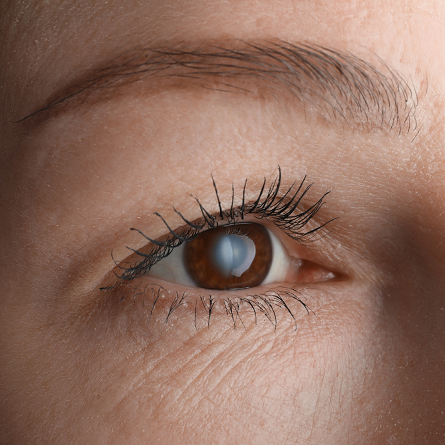Cataract Clinic

Cataract
Cataract means cloudiness of the natural lens of your eye, causing hazy, blurry, and less colorful vision. Having a cataract can be like looking through a foggy or dusty car windshield.
Cataract surgery is a procedure in which the cloudy natural lens of the eye causing blurry vision is removed and replaced with an artificial lens.
Cataracts are removed with sound waves and by a group of consultants in this field without total anesthesia or even surgical stitches
All types of lenses are implanted, including soft lenses, astigmatism-correcting lenses, and multifocal lenses that replace the use of reading glasses.
• Major improvement in vision as your eyes heal
• After having cataract surgery, many patients notice that colors are brighter.
• Cataract surgery can correct refractive vision problems such as nearsightedness, farsightedness, and presbyopia.
• Your surgeon will discuss all the possible outcomes of the procedure, costs, and pre-operative instructions.
• You might experience excessive tearing, very mild pain or discomfort in your eyes, as well as sensitivity to light. These symptoms usually only last for a few days and will improve significantly with postoperative treatment.
• You will be advised to use certain eye drops after the surgery. Make sure you follow your surgeon’s instructions
• Do not rub or press on your eye.
• You can wash your face and take a shower the day following the operation, however, avoid getting soap or water directly in the eye.